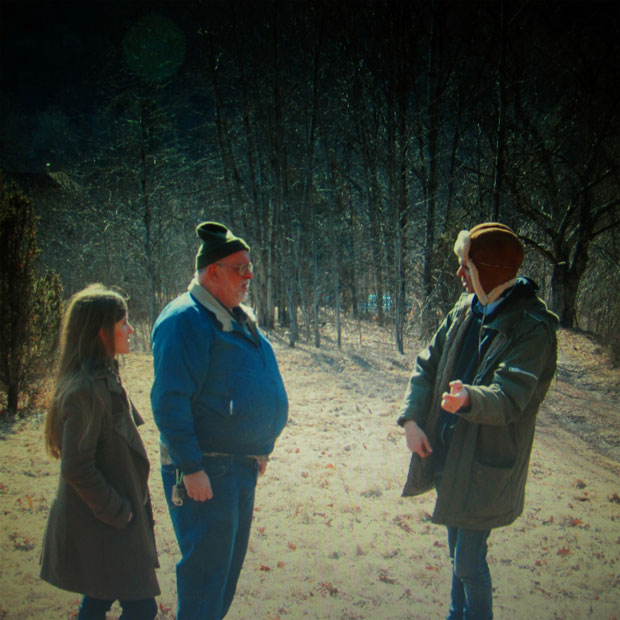 With Swing Lo Magellan, Dave Longstreth and Dirty Projectors have created a pitch-perfect, percussive masterpiece that perfectly toes the line between captivating experimentation and traditional pop music. If you do your Projectors homework, it won’t take long to find rampant claims that Swing Lo is the group’s most accessible album yet, expanding the trend that began with Bitte Orca. However, it’s important to say that it’s not as if Longstreth and co. have abandoned their challenging and inventive leanings altogether.
With Swing Lo Magellan, Dave Longstreth and Dirty Projectors have created a pitch-perfect, percussive masterpiece that perfectly toes the line between captivating experimentation and traditional pop music. If you do your Projectors homework, it won’t take long to find rampant claims that Swing Lo is the group’s most accessible album yet, expanding the trend that began with Bitte Orca. However, it’s important to say that it’s not as if Longstreth and co. have abandoned their challenging and inventive leanings altogether.
Yes, they have created an album that will undoubtedly pull in listeners standing outside the circle, but they have also created an ever-surprising and odd work of art that always engages and offers some new nuance with each listen. Swing Lo Magellan is a sleek, tight experimental pop record that shifts brilliantly from strange string melodies to expansive major key harmonies. It is, without question, one of the best albums of the year so far.
From the beginning, Dirty Projectors showcase the lean, compressed arrangement style that crops up repeatedly on Swing Lo, but then they switch it up for the chorus of “Offspring Are Blank,” exhibiting the bright, indie-rock that occasionally explodes forth from the mix. A similar statement can be made for the subsequent track, “About to Die,” though the tinny vocals of the refrain avoid the full on rock of its predecessor. These sunlit peaks and dim valleys tell the story of Swing Lo Magellan in all its majesty.
I wrote on the day of its release about minimalist magnum opus “Gun Has No Trigger,” but I’ll add that it’s impeccable—perhaps one of the greatest pop songs of the decade. The fact that it achieves so much with so little only bolsters its credibility. The first four songs of the album conclude with the title-track, which rounds out the diversity of songwriting we hear on the record. The song borders on traditional folk, straightforward and sparse. Longstreth sounds a bit like Belle and Sebastian frontman Stuart Murdoch, but at moments when his voice breaks, is undeniably himself.
The songs that follow these four build upon their patterns, but employ important variations. For example, “Just From Chevron” follows the title-track and features acoustic sounds, but its guitar notes are much more frantic and it reintroduces the relentless percussion of “About to Die” along with more exuberant vocals. Late album track “The Socialites” employs a minimalist mix of alternating thin snare and deep bass over female vocals and simple Casio-keyboard-like noodling.
“Irresponsible Tune” closes the album and emerges as one of the most divergent cuts. It harkens back to 50s soul and recalls John Lennon’s songwriting while Longstreth’s vocal tone sounds like Paul McCartney. To me, these similarities aren’t just passing similarities that almost all modern rock and pop bands possess. Rather, Longstreth, like other seminal musicians, possesses the same brilliant abilities to fuse musical styles, experiment with sound, and still deliver some of the catchiest pop tunes you’ve ever heard. It is this quality that elevates him to the status he holds as one of America’s most important artists.
Beatles-esque elements (used to great effect) aren’t limited to the closer, but it’s when Longstreth does pop his own way that he’s most successful. “Dance For You” perfectly balances the snare-centric percussion all over the record, the frequent handclaps, and the upbeat melodies. The song feels unhurried, but doesn’t meander. Calling the guitar riff infectious sells it short by a longshot. To abandon the critical perspective and speak from the heart—with the opening notes of the song, I feel overwhelming joy. “There is an answer/ I haven’t found it/ But I will keep dancing until I do,” Longstreth sings, and it hangs in your brain all day. As it occurs, I’d argue that Dave Longstreth and Dirty Projectors just might have found the answer, and it’s Swing Lo Magellan.








